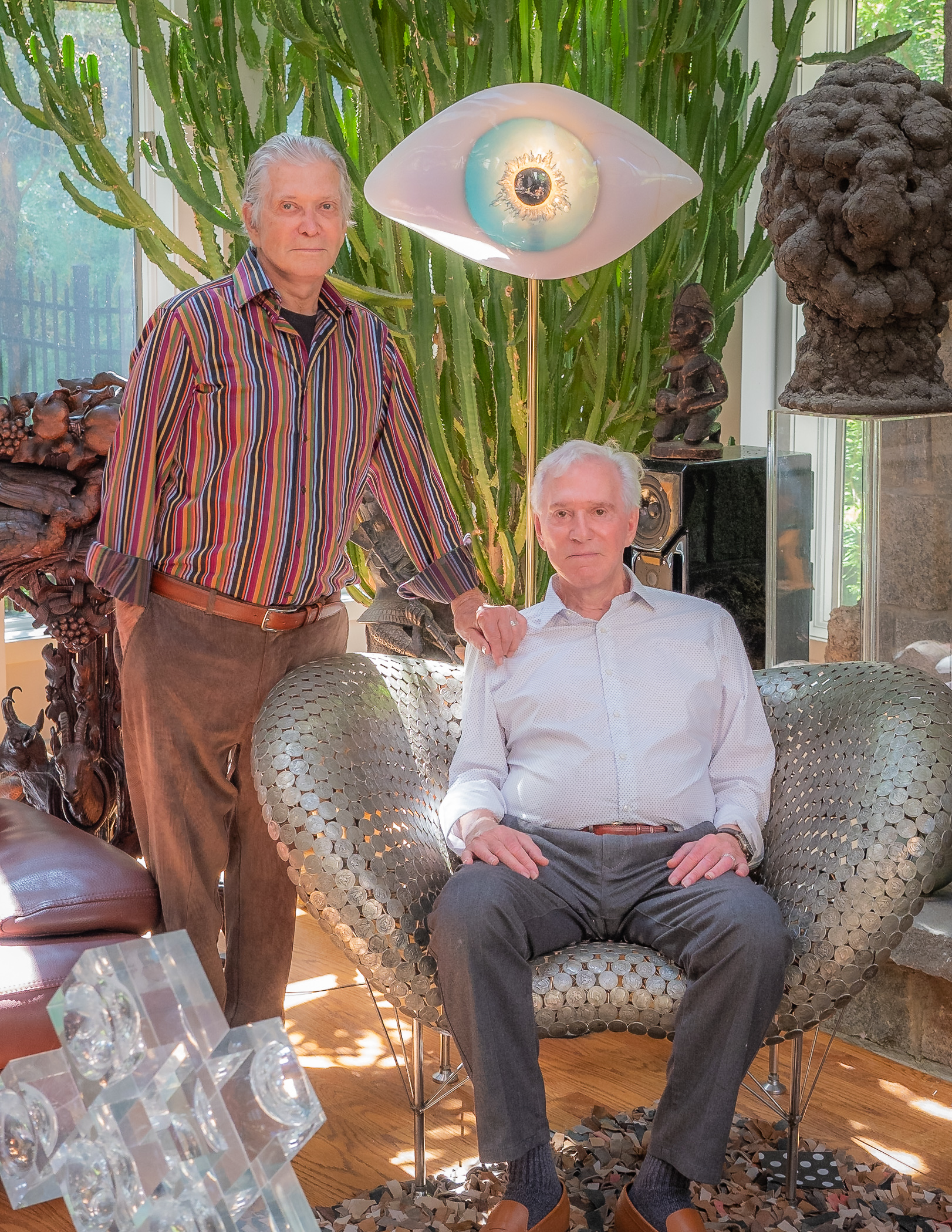“The Community Are Our Kids.” Meet a New Foundation Focusing on LGBTQ Causes
/Leonard-Litz Foundation Founders Elliot Leonard and Roger Litz
The newly minted Leonard-Litz Foundation supports nonprofits serving the LGBTQ community within the Northeastern United States. Early work focuses on areas including health and wellness, crisis intervention and racial justice, and the foundation gives special consideration to grantees serving communities of color and transgender or gender-nonconforming people.
In past years, longtime couple Elliot Leonard and Roger Litz of Connecticut, who launched the foundation, became involved with large flagship organizations like GLSEN, Human Rights Campaign Foundation and Lambda Legal. Over time, however, they wanted to do work at the community level, and in their own backyard, discovered the Triangle Community Center in Norwalk. The organization empowers and advocates for LGBTQ people in Connecticut through programming “focused on health, community and learning.” Leonard has since joined the board, worked closely with its executive director, and received what he calls a true education.
“It’s not easy to do this work... Animals in the wild don’t know where their next meal is. [It’s] the same with a nonprofit,” Leonard told me. The couple became major contributors to the Triangle Community Center, and the organization influenced them as they created their foundation.
Leonard and Litz, who have been together some five decades, met in Los Angeles. Brooklyn native Leonard got his J.D. from UCLA Law and worked in real estate law, then as a developer and an owner of a successful roofing subcontracting company in California. Litz served in the Air Force before turning to work as a veterinarian and playwright. Through the years, they split time between the West and East Coasts.
In the past several years, they’ve started thinking more seriously about their estate, the couple told me. “We want to pass on our money to these community organizations wherever we can.… We don’t have children. We don’t have grandkids. The LGBT community are our kids, and we’re glad we’ll be able to support them beyond our lives,” Leonard said.
Emerging giving
The foundation’s nascent grantmaking focuses on five programs: Health & Wellness, Crisis Intervention, Social Programs and Support, Racial Justice, and Advocacy and Community. At the start of the year, the Leonard-Litz Foundation launched a $250,000 COVID emergency fund for the LGBTQ community, which will dispense $15,000 grants to nonprofits that are providing support to LGBTQ individuals who are struggling with hardships imposed by the pandemic.
An issue brief from the Human Rights Campaign Foundation catalogues a range of disparities confronting the LGBTQ community during the COVID-19 crisis, including being more likely to work in jobs in highly affected industries—often with more exposure and/or higher economic vulnerability to the COVID-19 crisis, including healthcare coverage gaps and lack of paid leave. Seventeen percent of LGBTQ adults do not have any kind of health insurance coverage, compared to 12% of non-LGBTQ adults.
The foundation aims to impact people in the community ranging from teenagers all the way up to seniors. Their work with Triangle Community Center reinforced their belief that they needed to have this community-based vantage in their own giving. “Wealthy or poor... kids coming out have the same problems no matter what their status,” Leonard says.
What exact organizations will Leonard-Litz Foundation fund? Well, grantmaking is still taking shape. The two make it clear that organizations need to fit within the foundation’s five focus areas. Grantmaking will focus on the Northeast and Mid-Atlantic and on community organizations. Grantees will be awarded up to $50,000 and the foundation will require an end-of-year report to determine whether to continue funding.
Years ago in Los Angeles, when the couple was working with GLSEN, they met a kid whose mega-church pastor father kicked him out of the house, forcing him to live in a car; the couple stepped in and gave him a scholarship. Today, Leonard-Litz Foundation’s Crisis Intervention program focuses on cost-effective ways to ease the mental health struggles of people experiencing such challenges in a community disproportionately at risk.
The foundation also focuses on the LGBTQ community of color. The Black transgender community experiences an extremely high unemployment rate at 26%, two times the rate of the overall transgender sample and four times the rate of the general population. A startling 41% of Black respondents said they had experienced homelessness at some point in their lives, more than five times the rate of the general U.S. population, according to an analysis by the National LGBTQ Task Force.
“We have a provision that any organizations that have a large amount of people of color get high priority. Racial justice issues are important. Of all people, we should be aware of this,” Leonard says.
Besides Leonard and Litz, the foundation has two trustees and a small list of collaborators that support its nascent work. Daryl Duarte was tapped as the foundation’s inaugural executive director; after working as a technology executive, he wanted to work in the nonprofit space and make an impact on his community.
The foundation’s Advocacy and Community program focuses on outreach and advocacy projects that improve public policy for the LGBTQ community. “This is a Republican town,” Litz says. Last June, however, the couple was featured in the local paper, as they helped raise the pride flag at City Hall for the first time.









